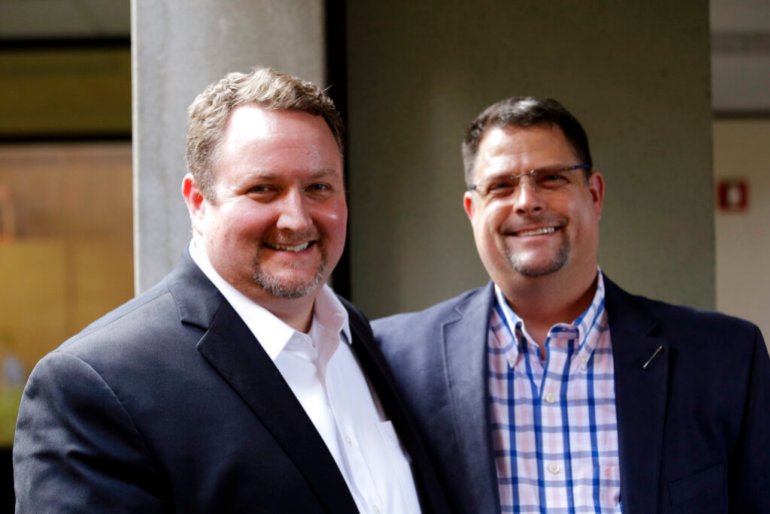US Supreme Court to take up religious school dispute next term
Justices decline to take up Washington state case of florist sanctioned for refusing to provide flowers for gay wedding.

The US Supreme Court on Friday took up a challenge by two families with children attending Christian schools to a Maine tuition assistance program that bars taxpayer money from being used to pay for religious educational institutions.
The nine-member Supreme Court, which has a 6-3 conservative majority, declined to take up the case of a Colorado florist who refused to provide services for a same-sex wedding, leaving in place a lower court ruling the florist broke anti-discrimination laws.
Keep reading
list of 4 itemsJustice Breyer and the great drama of the US Supreme Court
US Supreme Court rejects contractor’s Abu Ghraib torture appeal
US Supreme Court backs cheerleader in free speech case
Friday’s announcement of cases accepted and declined marks the end of the Supreme Court’s present term, which culminated in a major 6-3 ruling on ideological lines on Thursday that could make it easier for states to enact voting restrictions. The court’s next term will begin in October.
The justices agreed to hear an appeal by the families of children attending Christian schools of a lower court ruling that Maine’s programme did not violate the US Constitution’s First Amendment right to the free exercise of religion.
A ruling against the state of Maine could build on other decisions by the court in recent years allowing public funds to go to religious institutions.
The Boston-based First US Circuit Court of Appeals had ruled against the families last year, deciding that Supreme Court precedents did not forbid states from barring public funds from religious entities based on how those dollars would be used.
The Supreme Court on Friday rejected several appeals including one brought by a florist fined by Washington state for refusing to make a flower arrangement for a same-sex wedding due to her Christian beliefs.
At least four of nine justices on the Supreme Court are needed for the court to take up a case. Only three conservatives, Justices Clarence Thomas, Samuel Alito and Neil Gorsuch said they would have agreed to hear the florist’s appeal and review the decision.

In 2018 the Supreme Court had ordered Washington state courts to take a new look at the case involving florist Barronelle Stutzman and her Arlene’s Flowers business.
After review, the state of Washington Supreme Court ruled unanimously that state courts did not act with animosity towards religion when they ruled Stutzman broke the state’s anti-discrimination laws by refusing on religious grounds to provide flowers for the wedding of two gay men, Rob Ingersoll and Curt Freed.
The American Civil Liberties Union (ACLU), which had represented Ingersoll and Freed, hailed the decision as a win for LGBTQ rights.
“Today the Supreme Court confirmed that LGBTQ people should receive equal service when they walk into a store,” said Ria Tabacco Mar, a lawyer with the ACLU representing the couple and the director of the ACLU Women’s Rights Project.
Ingersoll had been a customer of Stutzman’s flower shop for nearly ten years and she knew he was gay. But she contended his marriage to another man went against her religious beliefs and felt she could not provide services for the event.
Washington state law requires businesses offering services to opposite-sex couples to provide equal service to same-sex couples.
“We hope this decision sends a message to other LGBTQ people that no one should have to experience the hurt that we did,” Ingersoll said in a statement.
In a different case in 2018, the US Supreme Court had struck down on narrow legal grounds a Colorado state agency ruling against a baker who declined to make a cake for a same-sex wedding.
The court did not rule on whether the baker’s action had been discriminatory but found that Colorado’s civil rights commission had exhibited “religious hostility” towards the baker’s Christian beliefs.